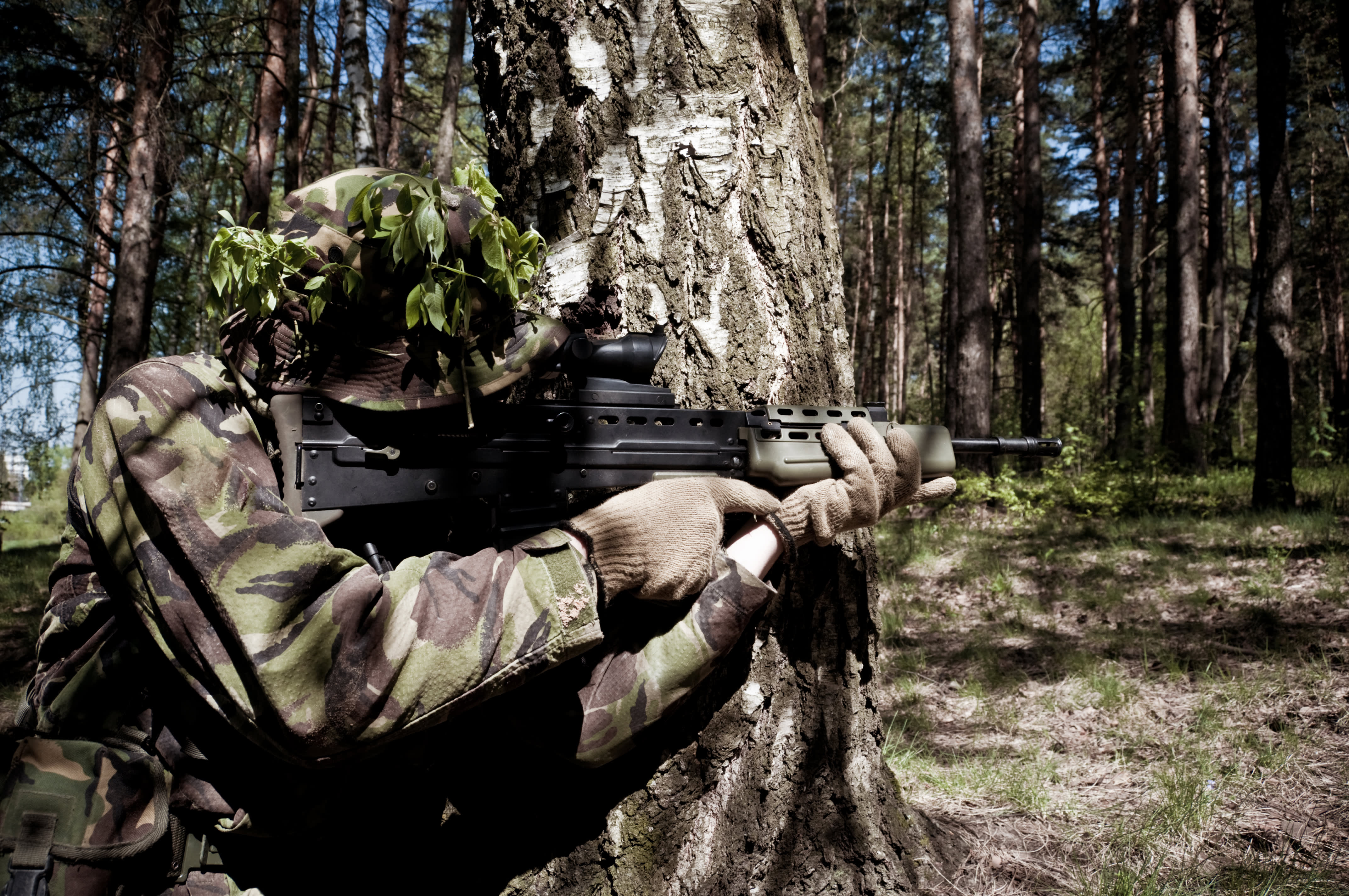UK to host NATO amid warning it would be 'outgunned' in potential conflict with Russia

A British soldier
Arand | E+ | Getty Images
As the U.K. prepares to host heads of state and government and military leaders gather for a North Atlantic Treaty Organization (NATO) summit in London next week, several warnings have emerged over limitations of its own warfighting capability, especially if there was a conflict with Russia.
A report from the country's Royal United Services Institute (RUSI), a prominent defense think tank based in London, said on Wednesday that U.K. ground forces would be "comprehensively outgunned" in a potential conflict with Russia in Eastern Europe.
The paper, written by RUSI Research Fellow Jack Watling, called "for the modernization of its fires capabilities to be a top priority" warning that the U.K. currently 'possesses a critical shortage of artillery." Artillery has historically inflicted between 60-90% of casualties in high-intensity warfare, the report noted.
The RUSI paper published Wednesday was aimed at assessing the U.K.'s "commitment to the (NATO) Alliance's capabilities in a potential high-intensity conflict with Russia, in which the U.K. has promised to deliver a warfighting division."
However, in benchmarking against Russian capabilities, the paper stated that "the U.K.'s ground forces are comprehensively outgunned and outranged, leaving enemy artillery free to prosecute fire missions with impunity."
Although he noted that "direct war with Russia is unlikely," Watling said that for the U.K. to regain a competitive edge "it must either be prepared to invest in highly effective but expensive stockpiles of precision guided munitions, or must reconsider its commitments under the Oslo Convention prohibiting the use of cheaper, but highly effective ammunitions natures such as cluster munitions, used by both Russia and the U.S."
The Oslo Convention on Cluster Munitions prohibiting the use, transfer and stockpiling of cluster bombs was signed by over 100 states, including the U.K., in 2008. Both Russia and the U.S. did not sign the treaty.
Asked for a response to the RUSI report, a spokesperson for the U.K.'s Ministry of Defense told CNBC that "as the largest NATO defence spender in Europe, the U.K.'s armed forces are well equipped to take a leading role in countering threats and ensuring the safety and security of British people at home and abroad."
The MoD added that "the U.K. does not stand alone but alongside its NATO Allies, who work closely together across air, sea, land, nuclear and cyber to deter threats and respond to crises."
NATO members have previously agreed to spend 2% of their GDP on defense. But NATO estimates for 2019, released in June, show that only the U.S., U.K., Greece, Estonia, Romania, Poland and Latvia have met or surpassed the 2% target. NATO member Greece spent 2.24% of its GDP on defense, according to the data, while the U.K. and Estonia jointly held the second highest defense spend of a European NATO member, at 2.13% of GDP.
NATO meeting
The paper comes ahead of the NATO Leader's meeting in London on December 4, marking the 70th anniversary of the military alliance of 29 countries. Russia is still in the spotlight for NATO given its annexation of Crimea from Ukraine in early 2014 and backing of a separatist uprising in east Ukraine – a move that prompted a military conflict that is still unresolved.
Frosty relations appear to be thawing somewhat between Russia and Ukraine, under the new leadership of President Volodymyr Zelensky, and he is due to meet Russian President Vladimir Putin in Paris in December.
Nonetheless, the military conflict in east Ukraine rattled the NATO military alliance and was especially startling to its Europe members.
Following the Ukraine crisis, NATO decided unanimously to suspend co-operation with the Russian Federation though there have been calls for a rapprochement with Russia. Anxieties remain, however, and over 4,000 troops from NATO member countries are still stationed in Poland and the Baltic nations of Estonia, Latvia and Lithuania as a deterrent against potential Russian aggression.
For its part, Russia has been angered by the U.S.' decision to deploy missile defense systems in Romania and Poland (completion is delayed to 2020) and the prospect of Ukraine and Georgia, both of which used to be part of the former USSR, joining NATO is also an unpalatable prospect.
In September 2019, Russian Foreign Minister Sergey Lavrov said that "NATO approaching our borders is a threat to Russia." That view was echoed by Russian President Vladimir Putin last Friday, when he told Russia's Security Council that "the world is facing serious threats and challenges" and that Russia was also "seriously concerned about the NATO infrastructure approaching our borders, as well as the attempts to militarize outer space."
Putin added that a "significant blow to the weapons control system was the U.S.' decision to withdraw from the Cold War-era Intermediate-Range Nuclear Forces Treaty (INF Treaty) under what he called "a far-fetched pretext." The U.S. pulled out of the INF Treaty in August, claiming that Russia had violated the agreement. Russia also accused the U.S. of failing to keep to the terms of the deal which prohibited the production or testing of ground-launched cruise missiles with a range of 300 to 3,400 miles.
Aside from the U.K., Watling's paper for RUSI said that there were wider deficiencies in NATO where "forces have tended to significantly underestimate the quantity of firepower needed to enable ground maneuver without prohibitive casualties, when fighting in complex terrain." It observed a shortage of munitions stockpiles across the alliance, demonstrated in both Libya and Iraq.
Read More
Sem comentários